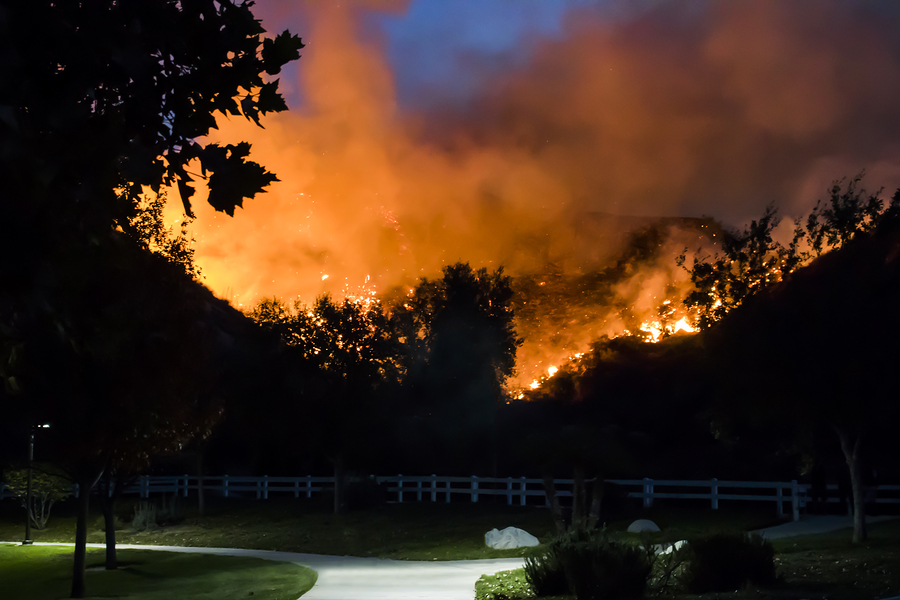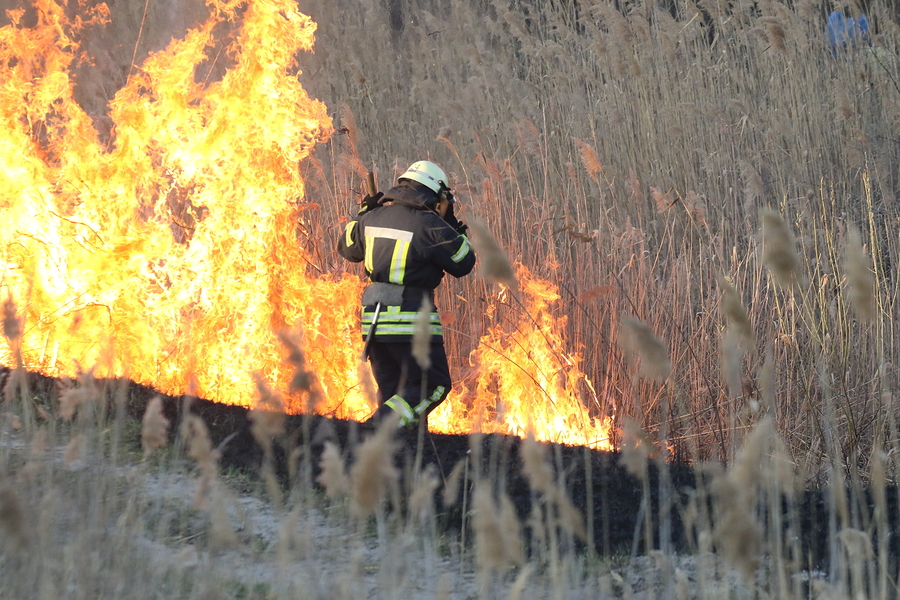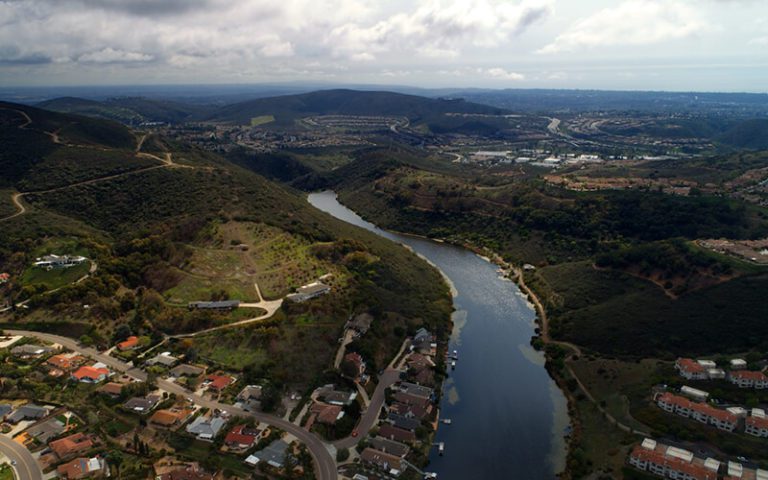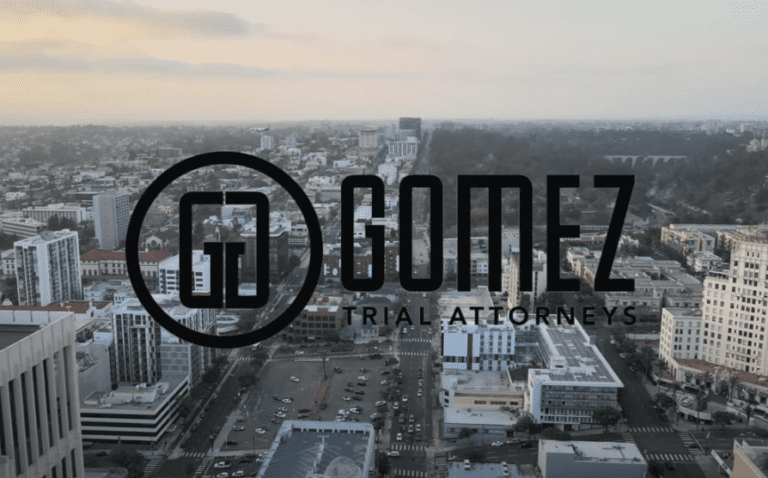Every year, wildfires cover thousands of acres of land across California. Substantial property damage and loss of life follow. Citizens can go a long way toward reducing the risk of wildfires. In fact, a few simple steps on your part can help protect your property and the property of everyone else around you.
1. Don’t burn on high-risk days.
Avoid burning on days with high wind or when insufficient rain has caused greater dryness throughout your region. Your local government may issue specific bans on burning in certain conditions. But, regardless, you should always err on the side of caution.
Plan your burning carefully, and maybe delay it during wildfire season or consult your local fire department before setting spark to fuel. On windy days, a single spark can ignite an uncontrolled blaze that causes widespread damage. When in doubt, avoid burning to help keep your home, your family, and your community safe.
2. Remove brush from around your home.
Brush, especially during the driest seasons in California, can pose a substantial burn hazard. It serves as kindling that facilitates the rapid spread of a blaze. Keep your home and family safe by clearing out brush around your home. Trim back unnecessary growth on trees and bushes, and try to avoid excessive over- and under-growth. Ideally, you should aim to remove all vegetation in at least a 30-foot buffer around your home to help protect against the spread of fire.
3. Never leave a fire unattended.
Whether you started a fire pit in the back yard and planned to cook over it, or you decided to burn brush to get rid of it, never leave a fire unattended. Make sure someone has an eye on the fire at all times. Only your constant vigilance around a fire can prevent an errant spark or rapid, uncontrolled spread.
You may also need equipment on hand that will help you reduce the danger if a fire starts to spread, including:
- Shovels
- Rakes
- Water hoses
If you intentionally start a larger fire, especially in the case of a big burn, make sure you have a ditch digger, tractor, plow, or large sprayer on hand to help combat the flames if they start to get out of control. Do not start a fire without having a plan in place to contain that fire if it starts to grow more than anticipated.
4. Build a firebreak before you start the fire.
You have a specific area where you would like the fire to remain contained. Unfortunately, fire does not respect arbitrary boundaries. Create a firebreak around the fire by creating a cleared stretch of land. Fire will not burn dirt, and that cleared stretch of land creates a clear boundary that the fire cannot cross. A larger fire may require a larger firebreak.
Make sure that nothing in the fire extends over the firebreak. Putting together a bonfire, especially a large one, can result in sticks slipping over the boundaries you have established for your fire. If you do notice branches extending over the edges of your firebreak, push those branches back into the fire with a safe object. If they do fall, make sure they fall within the firebreak and put out any sparks quickly.
5. Get permission, and call the fire department immediately, before your fire starts to get out of hand.
In many locations, you may need permission from the local fire marshal or fire authority to start a burn. Check your local regulations before burning, and get the permission you need if necessary.
Regardless of whether you sought advance permission to burn, call the fire department immediately the moment your fire begins to test your ability to control it. Do not wait for the fire to worsen before summoning help. As we all know, mere minutes in combating a fire can mean the difference between safety and deadly chaos. Your local fire department would always rather have the chance to control a small burn than have to fight a rapidly spreading wildfire.
Emergency services exist to provide aid in difficult situations, so contact the fire department before you need them. Even if it means you might get a fine for burning without permission, that is far preferable to the alternative: a wildfire that destroys your community and costs lives.
6. Pay attention to sparks from other sources.
While bonfires and burn piles can spark wildfires, sparks from other sources can also quickly lead to a wildfire. Sometimes, negligence with fire can lead to disaster for entire neighborhoods.
Consider:
- Sparks from grills and other cooking devices
- Sparks from cigarettes
- Fireworks
- Matches
Any time you light a flame, even a small flame, keep track of all of your sparks. Extinguish any sparks immediately, before they ignite dry grass or kindling. You can stamp out a small spark quickly, but a large fire can prove much more difficult to contain as well as proving dangerous for a wider group of people.
7. Check campfires, bonfires, and fire pits to ensure the fire has gone out.
You tossed water over the campfire, leaving it smoldering, and headed into your tent. That should prove adequate, right? Unfortunately, in many cases, fires can continue to smolder and, ultimately, relight, leading to substantial dangers when left unattended. Those unattended flames can continue to grow unchecked, and a stray gust of wind can send sparks into the air and ignite brush or grass. Always recheck campfires, bonfires, and fire pits after putting out the flames. Make sure the fire has gone out completely before turning-in. If you note sparks or coals, add water or smother the flame by burying it completely to reduce wildfire hazards.
8. Clear away leaves and debris away from your home before the start of wildfire season.
Leaves and debris can pose a substantial hazard during wildfire season. Protect your home and your neighborhood by clearing away leaves and debris. Consider any dry material that could catch fire quickly. Pay particular attention to debris immediately around your home or dry items near fire pits or any place where you set up a bonfire. Always clear the ground before starting a fire, and keep your ground clear throughout wildfire season. You never know when your clearing measures will provide the fire break your home needs to remain safe in an emergency. During wildfire season, make sure you keep up with these responsibilities regularly. If you notice debris starting to pile up or brush starting to grow back, take care of it quickly.
9. Consider installing sprinklers to help protect farms and properties, especially those with heavy vegetation.
In the event of a fire in your neighborhood, sprinklers in vital areas can help keep your property safe. This measure may prove particularly vital on farms, where a wildfire can decimate a crop in a matter of minutes. Check with local government regulations concerning sprinklers, including safe water usage. You may also want to check the placement of hoses and other water access. Try not to start fires, including bonfires and cooking fires, in areas where you have inadequate access to water. Run a hose to the area or set up your fire in another area if needed.
10. Remove combustible items from around your home, including on porches and patios.
During wildfire season, California residents must pay careful attention to the items left out around their homes. You may already know that wood piles and other fire hazards should sit thirty feet or more away from your home, since even a spark can cause them to ignite and increase the risk to your home. Other items, however, can pose equal dangers.
Remove these items from your property or keep them inside to help reduce risks.
- Patio furniture, especially any cushions on that furniture
- Unnecessary cushions
- Potted plants
- Rattan mats
- Decorations
11. Pay attention to the instructions on storage for combustible chemicals.
If you need to keep combustible chemicals on your property, whether for personal use or as part of a workshop, make sure you store those chemicals properly. Do not keep them under raised storage or in locations where they can pose a substantial hazard to your property. Do not store flammable chemicals in areas that have a substantial fire risk, including areas near grills, fire pits, or outdoor cooking areas. You should also make sure you have a clear fire break around any areas where you store chemicals, including barns, outbuildings, and other storage areas.
12. Use combustible liquids and chemicals with caution.
If you use a liquid or chemical with known flammable properties, exercise caution. You might know not to leave a gasoline trail running away from your fire pit, but many people do not think about the potential hazards associated with, for example, using flammable liquids too close to your home or on your patio, or using flammable liquids too near a fire pit. Carefully review any instructions associated with the liquid you use and make sure you exercise caution in both the use and disposal of that chemical.
13. Pay careful attention to local announcements, news, and resources during wildfire season.
Wildfires can cause widespread property damage and loss of life. Unfortunately, much of that harm occurs because people wait too long to evacuate their homes and workplaces in the event of a wildfire. Listen carefully to local announcements and news reports during wildfire season. If you hear evacuation orders, get out as fast as possible. Do not return to your home for any reason if you hear the orders while away from your home and outside the danger area.
If you hear a warning that a fire could spread your direction, start preparing to leave immediately. Protect the items most precious to you—and remember that your family is more important than anything you could pack. Evacuate fast and leave possessions behind if you must. You can replace those items later if needed, but you cannot replace your family.
14. Create an evacuation plan for your family.
If a wildfire does hit your area, does your family know how to respond? You should work with your family to put together a disaster response plan well ahead of wildfire season.
This may include:
- How to get out of your neighborhood. In the midst of a wildfire, you may need more than one route to get out of your neighborhood. Create a plan that will help your family get to safety if a wildfire hits.
- Where you want to meet up. If a member of the family does not have their phone or cannot get in contact with you for other reasons, where will you meet up? Designate a place well away from your neighborhood.
- What you need to take with you. What items will prove most crucial in a crisis? If you have time to pack up, what items should you pack first? Make sure you have a clear plan in place that will allow you to pack fast. During wildfire season, consider packing bug-out bags for each member of your family that will enable you to get out fast if you need to evacuate in a hurry.
- How many vehicles you want to take. In a wildfire, taking all the family’s vehicles with you can help protect those investments, but it can increase the risk that your family will end up separated in the middle of an emergency. It can also lead to unnecessary congestion and traffic tie-ups on vital evacuation corridors. Plan ahead of time for how you want to handle the family’s vehicles. If you have more vehicles than drivers, carefully consider which vehicles you want most to take with you. Prioritize comfortable family transportation.
While you cannot prevent the risk of a wildfire in your area, you can substantially reduce the risk to your home and property. Many of our clients live in an area where wildfires pose a regular risk. By understanding fire safety and taking the right measures to reduce those risks, you can keep your family safer during wildfire season, as well as protecting your property.







